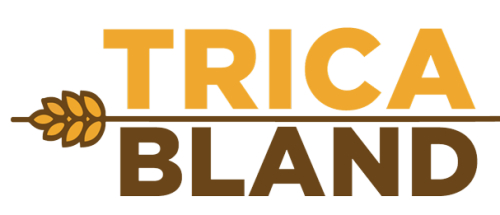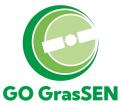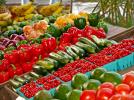
TRICABLAND Operational Group: Production of high-quality soft wheat in Andalusia
- Type Operational group
- Status In progress
- Execution 2023 -2025
- Assigned Budget 253.281,00 €
- Scope Autonómico
- Autonomous community Andalucía
- Project website GO TRICABLAND
Production of samples of ten soft wheat varieties representing current average quality and the quality that can be achieved with new varieties selected for their high flour quality, in five different environments in Andalusia each year. Four environments will be rainfed, representing average management in the main production areas, in trials conducted by Agrovegetal in collaboration with its associated cooperatives: Campo de Tejada (Escacena), Coesagro (Écija), San Dionisio (Jerez de la Frontera), and SAT Córdoba. One environment will be irrigated in the trial conducted by IFAPA in Santaella (Córdoba).
- Analyze the productivity, disease and pest resistance, and especially the quality of different varieties in different environments as a preliminary step toward producing uniform batches of soft wheat with the ideal characteristics for producing high-quality flour.
- Dissemination of results through the AEI
- Dissemination of the results achieved in an information brochure and in specialized magazines, as well as at various conferences.
- Production of uniform batches of high-quality soft wheat in Andalusian cooperatives, based on the varieties and management methods that prove to be most efficient in each environment.
The project aims to promote the use of new, high-quality, high-value soft wheat varieties that meet the challenge of reducing environmental impact by utilizing more nutritionally efficient crops with low production input requirements, less water intensive, and that do not degrade the soil. To this end, while maintaining the main current varieties (Artur Nick and Tocayo), new high-quality varieties are being studied to determine the yield and quality of their corresponding crops and their impact on production costs and farm profitability.
The main innovative element is the use and enhancement of new wheat varieties for human consumption, emerging from selection and genetic improvement techniques carried out by Agrovegetal, whose team is involved in numerous developments of new crop varieties that provide high added value as food and are capable of mitigating the effects of climate change, as well as resisting the spread of pests and diseases. The newly selected varieties proposed have superior quality characteristics to the most widely planted varieties and are the fruit of many years of research conducted in Andalusia, which have been transferred to the private sector, but are still generally known.
The use of tools developed by the Ministry of Ecological Transition and the Demographic Challenge will allow for determining the carbon footprint of farms. It also proposes the development of a digital tool based on image analysis to monitor the development of rust in crops.
- Documentary phase
- Previous studies
- Experimental phase
- Conducting statistical trials of agronomic value on ten soft wheat varieties (three replicates) under dryland and irrigated conditions in five locations. Production of high-quality wheat samples on eight farms belonging to participating farmers in cooperatives.
- Sample collection and data collection in the field.
- Carrying out quality tests in the laboratory
- Digitization of leaf rust severity data collected during field trials.
- Final report writing and project coordination phase.
- Dissemination and dissemination phase of the project results.
- Production of high-quality soft wheat with varieties adapted to the changing environments caused by climate change.
- Integration of the production sector, public research centers, the seed production sector, and the flour industry.
- Development of a digital tool based on image analysis to objectively measure the severity of rust infestations in different wheat varieties.
- Improving the profitability of producers and grain cooperatives producing high-quality soft wheat in Andalusia.
- Improving the carbon footprint of high-quality wheat flour production in Andalusia
- Coordinator/entity name: Ignacio Solís Martel (Agrovegetal, SA)
- Postal address: C/Demetrio de los Rios, 15. 41003 Seville
- Coordinator/entity email: isolis@agrovegetal.es
- Telephone: 954540665
- Ignacio Solís Martel (Agrovegetal,S.A)
- Cooperativas Agro-alimentarias de Andalucía (cooperativas@agroalimentarias-andalucia.coop)
- Cooperativa Agrícola Ganadera San Dionisio (manolodiaz@sandionisio.com)
- Harinas Sanchez Palencia S.L.U (luis@harinassp)
- Universidad de Córdoba (carlos.guzman@uco.es)
- IFAPA,centro IFAPA Alameda del Obispo (cordoba.ifapa@juntadeandalucia.es)
- Coesagro,S,C,A (macobo@coesagro.com)
- Cooperativa Campo de Tejada (atomasmm@campodetejada.es)
- Ignacio Solís Martel (Agrovegetal,S.A)







